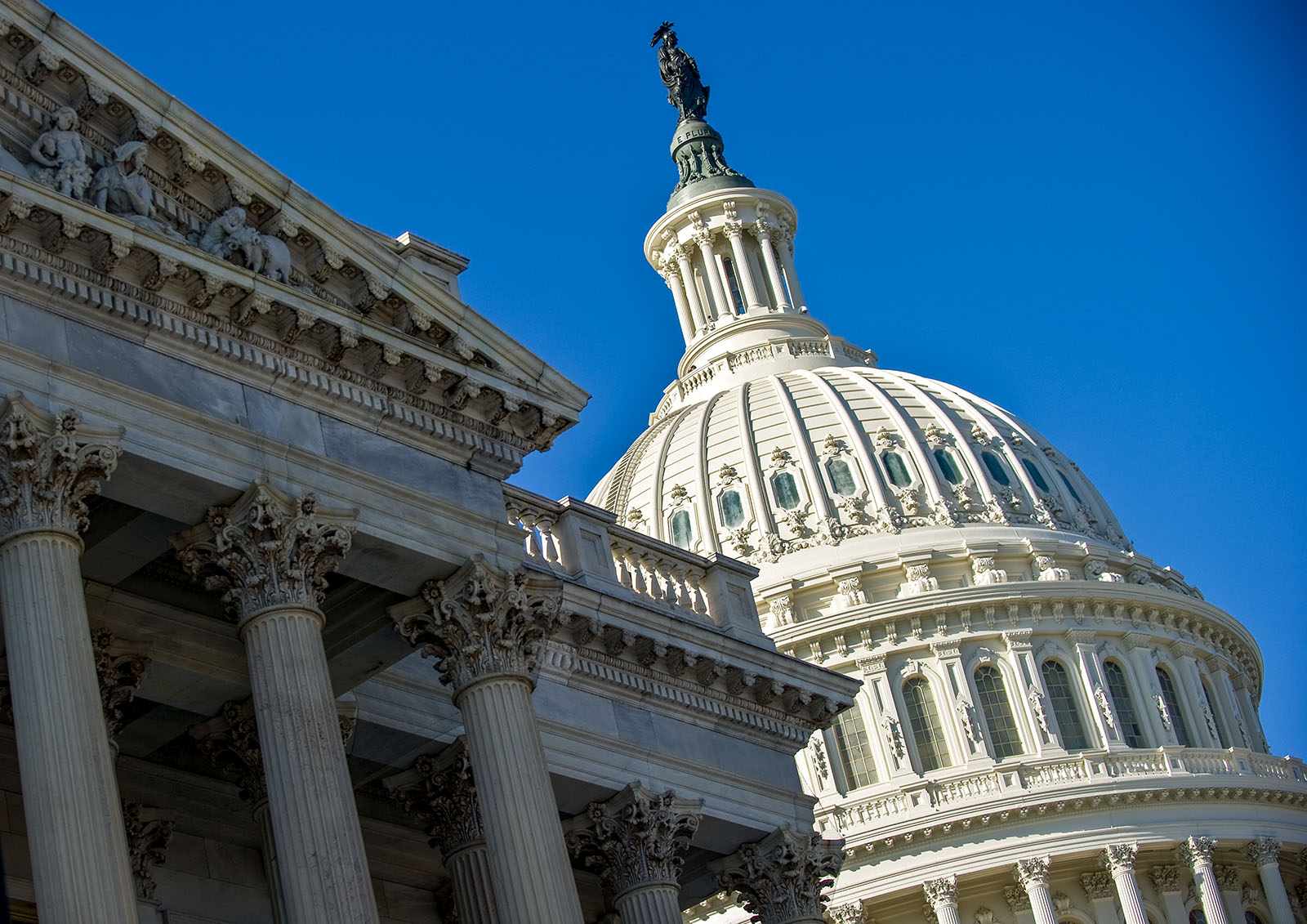The US Just Had Its First Hearing in Congress on ESG Issues. What’s Next on the Agenda?

The dome of the U.S. Capitol stands tall on a sunny day in Washington, D.C. On July 10th, the first ever congressional hearing on environmental, social and governance issues in the United States took place.
Photo: Nicholas Kamm/AFP/Getty Images
Wednesday July 10th marked the first ever congressional hearing on environmental, social and governance (ESG) issues in the United States. Entitled Building a Sustainable and Competitive Economy: An Examination of Proposals to Improve Environmental, Social and Governance Disclosures, the hearing was held by the Subcommittee on Investor Protection, Entrepreneurship and Capital Markets.
According to a recent report by The Forum for Sustainable and Responsible Investment, investors in the United States now consider environmental, social and governance factors across $12 trillion of professionally managed assets — a 38% increase since 2016.
The report also shows that the total U.S.-domiciled assets under management using sustainable, responsible and impact strategies grew from $8.7 trillion at the start of 2016 to $12 trillion at the start of 2018.
Standardizing ESG Disclosure
With growing demand from investors for improved disclosure, Rep. Carolyn Maloney, chair of the committee, described ESG as “one of the most important topics in the markets right now.”
However, while a lot of senior executives of big investment houses agree with the need for ESG disclosure, experts say that this hasn’t yet filtered down to individual portfolio managers and leads who make the investing decisions. “ESG disclosures,” Ms. Maloney argued, “often aren’t as detailed as they should be,” and because of the lack of a legalized framework, they’re also “difficult to compare across companies.”
To standardize and embed disclosure that is comprehensive and consistent, she urged the U.S. Securities and Exchange Commission to establish standards on ESG disclosure that will apply to all public companies in the U.S.
Rise of ESG Legislation
In the U.K., it will be a mandatory requirement for all listed companies and large asset owners to report on climate-related risks and opportunities by 2022, in line with the Task Force on Climate-Related Financial Disclosures recommendations.
The EU is hoping that a green agenda will drive greater investment activity in Europe. However, when the European Commission released its ESG recommendations last year, it got pushback from European pension funds that warned the EU to avoid a one-size-fits-all prescriptive approach. But in March this year, they reached agreement on a way forward for ESG regulation.
Some like to believe that sustainability risks are not real financial risks. But let’s be clear: Risks are risks, and they need to be disclosed.
In its hearing, the U.S. congressional committee debated drafts of five possible bills, all of which would require public companies to reveal more information on topics including climate policies, political expenditure and human rights. The proposed bills discussed were:
- ESG Disclosure Simplification Act of 2019
- Shareholder Protection Act of 2019
- Corporate Human Rights Risk Assessment, Prevention and Mitigation Act of 2019
- Climate Risk Disclosure Act of 2019
- Country by Country Tax Payment Disclosure
A Single Global Standard?
A lot hinges on the way that companies understand ESG issues. In the hearing, sustainability experts argued that the lack of a legal framework was creating inconsistency in disclosure across different companies. Various voluntary frameworks exist to provide guidance; the two most frequently discussed at the hearing were the Global Reporting Initiative and the Climate Disclosure Project.
Timothy Mohin, CEO of Global Reporting Initiative, said: “Just like financial disclosure, it’s essential that this committee and policymakers around the world focus on a single global standard, because we need a common global language if we are going to unlock free trade and capital flows that increasingly depend on this information.”
When Is an ESG Issue Material?
There was broad consensus on the committee that an issue can be material, regardless of whether it’s financial or nonfinancial: “Some like to believe that sustainability risks are not real financial risks,” said Ceres CEO Mindy Lubber. “But let’s be clear: Risks are risks, and they need to be disclosed — whether they come from trade agreements, fluctuating commodity prices, inflation or climate change.”
James Andrus, an investment manager at the California Public Employees’ Retirement System, stated that environmental disclosures are necessary to reveal how companies will be able to generate sustainable returns in the future.
All investors, he said, from private individuals to large institutions, “should have access to financial reporting disclosures that allow providers of capital to make informed decisions whether to buy, sell or hold certain securities.”
Evan Harvey, global head of sustainability at Nasdaq, commented: “We are very pleased to see Congress take up the issue of ESG disclosure. Nasdaq has long advocated better understanding of ESG dynamics in the market, more equitable access to decision-making data and better metrics themselves. Any emerging standard — whether voluntary or compulsory, driven by industry or government — must reckon with the disclosure burden that companies already bear and strike a balance between the burden and benefit of transparency.”
Actual legislation is still some way off, but the discussion is indicative of the increasing appetite for greater regulation in ESG disclosure in the United States.








